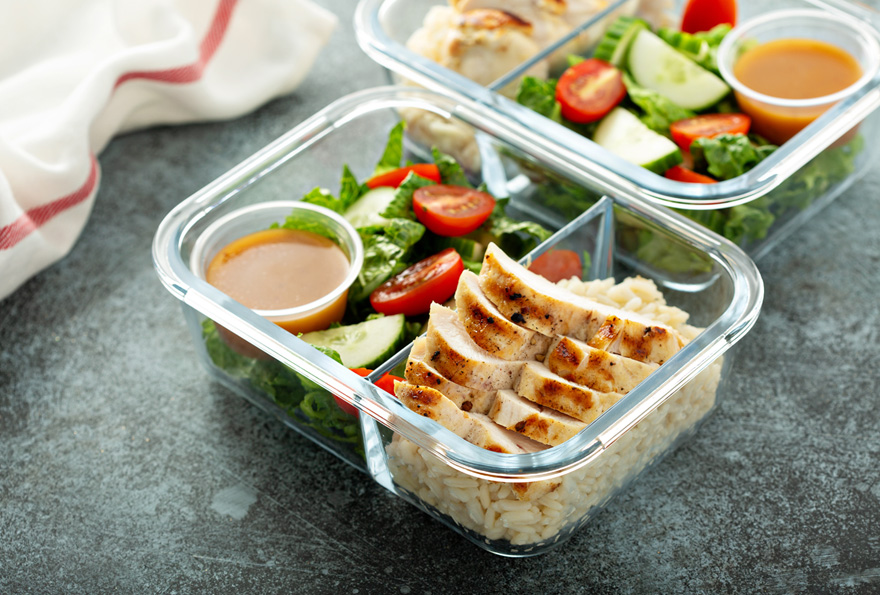Skipping meals is a common but unhealthy habit that many people pick up for various reasons: they are too busy to eat as they rush out the door; they want to lose weight, or they feel “full” on alcohol because of the “empty calories” that fool the brain. Even if drugs and alcohol were not part of the equation, skipping meals alone has negative consequences for those who are trying to lose weight. It could lead to weight gain instead of weight loss, because when the body goes into “survival mode,” people are more likely to eat the first thing they see at the closest fast food joint around the corner. Their blood sugar levels are down, which means they can’t think clearly, and when they are “hangry,” they feel irritable, confused, fatigued and stressed due to increased levels of cortisol, the body’s stress hormone.
Add drugs and alcohol to the mix, and the likely result is “drunkorexia,” a phenomenon describing the habit of skipping meals before drinking or binge drinking. A study examining this trend among college students shows that young women who are trying to lose or manage their weight are more likely to engage in drunkorexia. Another disturbing trend is the “aperitif effect,” which is the effect of alcohol on the body’s appetite for food. Drinking alcoholic beverages right before eating could significantly increase food consumption, leading to overeating and weight gain. Those who use substances other than alcohol to control and manage weight may do so because it decreases appetite, but different types of drugs have varying effects on a person’s eating habits and overall physical health. For example, though smokers may eat less, their choice in foods and sedentary lifestyles increase their chances of obesity.
Old habits, different forms: Why people gain weight after recovery
Without nutritional counseling, individuals who finish a rehab program are likely to repeat old habits with different results if they don’t return to drugs and alcohol. They may have shed the skin of substance use disorders, but they will also need to understand the important benefits of having a balanced diet and healthy lifestyle if they want to continue to look and feel good. This is what could happen if you don’t include nutritional counseling as part of your dual diagnosis treatment program:
• You may know how to be sober, but other areas of life are less than satisfactory
• You might continue to eat the wrong foods, especially foods high in sugar, and put yourself at risk for a transfer of addiction
• Without essential life skills, such as knowing the basics of grocery shopping and cooking, you could settle for sugary, salty, or fatty foods that are quick and easy to attain
• Eating patterns (such as skipping meals), an important but often overlooked aspect of nutrition, continue to affect the individual’s quality of life after recovery
• Low levels of thiamine and folate, found in fruits and vegetables, negatively affect behavioral health and have been associated with insomnia, depression and mood disorders
Avoid Skipping Meals: Here’s How
Victory comes in small steps. Most people nowadays don’t have time to do anything, but you can take 3-5 minutes for yourself:
• Jot down 2-3 of your favorite “portable” fruits you can eat at work or in the car (no cooking or preparation needed!)
• Buy pre-sliced fruits, such as pre-sliced green or red apples that are conveniently packaged (not to mention they are a delicious, direct source of Vitamin C when you’re coming down with a cold)
• Develop the habit of planning. If you only have 30 minutes for lunch at work, pick one day out of the week when you can spend 5-10 minutes planning what you want to eat for the week
• Check out these 52 meals you can make in 12 minutes or less.
• Avoid the long lines at the grocery store. Shop at 8 am or 8 pm to avoid the crowds.
• The best selections of fresh groceries are available early to mid-morning.
• Avoid weekend grocery shopping if you can.
• Eat regularly every 3-4 hours to avoid late-night meals.
• Count your victories every day. Every time you eat 3 meals a day, keep score and reward yourself at the end of the week with a massage (or something healthy and rewarding)
Looking for a dual diagnosis treatment program that offers nutritional counseling?
It’s not easy breaking a bad habit when old habits die hard. Substance abuse addiction makes it nearly impossible for individuals to develop new healthy habits because addiction is a disease of the brain and must be treated as such. Nutritional counseling is available at New Method Wellness, a premier dual diagnosis addiction treatment center that concurrently treats substance use disorders and other behavioral health disorders associated with addiction. Handpicked by Dr. Phil, New Method Wellness offers a variety of holistic therapy programs that are integrated with evidence-based practices such as cognitive-behavioral therapy.
For more information about our dual diagnosis treatment programs, call 866.951.1824 today!







